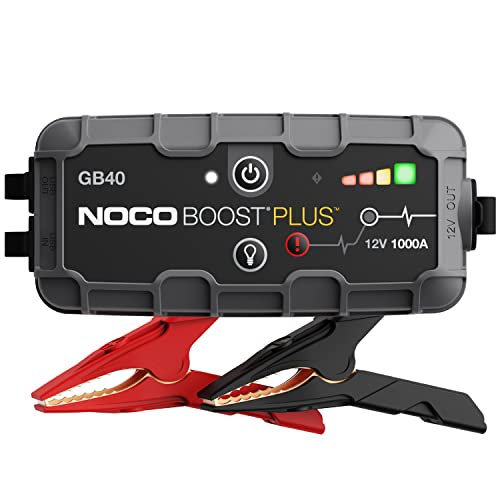Adulting 101: Life Skills That Actually Save Your Sanity

Let’s be real for a second: high school taught us how to find the area of a rhombus, but no life skills about how to file taxes, build a budget, or cook something other than microwave ramen. Bless geometry, but where was “How to Not Be a Hot Mess 101”? Welcome to the class you should have taken—no pop quizzes, just real talk.
Why Traditional School Didn’t Prepare Us for Real Life
Don’t get me wrong, reading Shakespeare and dissecting frogs had their place (kind of), but traditional school wasn’t exactly a bootcamp for real-world survival. The system focused on academics, sure, but it missed some crucial everyday stuff. Like:
- How to budget your paycheck without crying.
- How to cook meals that don’t involve a can opener and regret.
- What a credit score is, why it matters, and how not to destroy it by 25.
Teachers did what they could with the curriculum they were handed, but it’s on us now. Welcome to adulthood, where your diploma doesn’t help when your tire goes flat and you don’t know how to change it.
10 Essential Life Skills Every Adult Needs
Let’s get into the meat and potatoes of adulting: the skills that keep your life from spiraling into chaos on the daily.
1. Money Management
If you’ve ever looked at your bank account and felt personally victimized by your own spending habits—welcome, you’re among friends. Managing money isn’t about being rich, it’s about being smart. It’s the grown-up version of not eating all your Halloween candy in one night. Let’s break it down:
- Budgeting: You need one. Period. Track what you make and what you spend, then subtract. If the result is negative, it’s time to cut back on those impulse Amazon buys (yes, even the cute storage bins). Apps like Mint or YNAB can help take the guesswork (and denial) out of budgeting.
- Saving: Listen, your future self is gonna need a break (and probably some dental work). Build an emergency fund with at least $500 to start, then grow from there. Automate transfers so you don’t have to rely on self-discipline (because…let’s be honest).
- Credit Scores: It’s not just a mysterious number floating in cyberspace. It affects your ability to get a car, an apartment, even a job. Pay bills on time, don’t max out your cards, and check your score regularly. Treat your credit like your reputation—because it basically is.
- Debt Management: If you’ve got it, face it. Ignore the shame spiral. Use tools like the snowball or avalanche method to start paying it down. High-interest debt is a vampire… slay it first.
- Financial Literacy: Read a book (I recommend “I Will Teach You To Be Rich” by Ramit Sethi), watch a few YouTube videos, or follow personal finance creators who don’t make you feel like trash for enjoying iced coffee.
Bottom line? Know where your money is going so it stops ghosting you every payday. You work too hard to feel broke all the time.
Shift your relationship with money so you’re not just surviving—you’re thriving.

2. Cooking (for Real)
Let’s be honest—if your idea of cooking is adding hot water to Cup Noodles or turning the oven on to reheat pizza, it’s time for an upgrade. Knowing how to cook is more than just a survival skill—it’s a form of self-care, a financial lifesaver, and occasionally, a damn good flex on Instagram.
Here’s what every adult should know:
- Basic Recipes: You don’t need to become Gordon Ramsay, but you should be able to whip up a few go-to meals. Think: stir fry, baked salmon, a decent pot of chili, and a sheet-pan dinner. Bonus points if you know how to make a solid breakfast that doesn’t come from a drive-thru.
- Grocery Shopping 101: Make a list. Stick to it. Don’t shop hungry unless you want to end up with six bags of chips and no real food. Learn how to read labels and stock up on staples like rice, beans, frozen veggies, and spices that don’t expire every other week.
- Meal Prep = Sanity: Cooking once and eating three times? Yes, please. Invest in quality meal prep containers and start small: chop veggies in advance, pre-cook proteins, and portion out snacks so you’re not devouring a family-size bag of trail mix in one sitting.
- Spices Are Your Friends: Garlic powder, paprika, cumin, Italian seasoning… learn ‘em, love ‘em, use ‘em. Salt and pepper alone are for toddlers. If you’re nervous, start with pre-mixed spice blends (Trader Joe’s Everything But the Bagel, anyone?).
Cooking isn’t just about feeding yourself. It’s about gaining confidence, saving money, and feeling like you have your life (semi) together. Plus, once you master one dish, you’ll be hooked. Who knew being able to make your own damn dinner could feel so empowering?
3. Basic Car Maintenance
This one separates the “I got this” from the “Dad, help.” You don’t have to be a full-on grease monkey, but you do need to:
- Change a Tire: Get a jack, a lug wrench, and a YouTube tutorial. Practice in your driveway so you’re not weeping on the side of the highway at 11 PM.
- Understand Dashboard Lights: That cute lil’ engine-shaped icon? Not decorative. Learn what those warning lights mean. A car manual is your new bedtime read.
- Oil Changes & Fluids: Check your oil regularly. Same with coolant, brake fluid, and windshield washer fluid. Set a reminder every few months. Your engine will thank you.
- Jumper Cables 101: Keep a set in your trunk, and know how to use them (spoiler: red to red, black to a grounded metal, don’t fry your battery, or yourself).
Start with these Amazon must-haves:
These little habits can extend the life of your vehicle and keep you from calling AAA every other week. Or worse: calling your ex.
4. Home Repair Know-How
Look, you don’t have to flip houses on HGTV, but being able to fix a few things in your living space will make you feel less like a helpless blob and more like an actual grown-up.
- Hanging a Shelf or Picture Frame: Find a stud (no, not that kind). Use a level. Don’t just eyeball it unless you want your living room to look like a carnival funhouse.
- Unclogging a Drain: Grab a drain snake or try baking soda and vinegar before calling the plumber. It’s weirdly satisfying and saves you $$.
- Fixing a Leaky Faucet: A quick YouTube search and a $5 washer can fix that constant drip-drip-drip that’s been slowly driving you insane.
Shop these starter basics:
5. Time Management
Time isn’t just money—it’s your peace, your energy, and your sanity. If your to-do list reads like a CVS receipt and your calendar looks like a game of Tetris gone rogue, it’s time to stop letting time manage you and start managing it.
Use a Planner Like Your Sanity Depends on It (Because It Does)
Whether you’re a digital queen or a pen-and-paper purist, having a planner is non-negotiable. Google Calendar is great for real-time alerts, syncing across devices, and guilt-tripping you into showing up. Prefer something tactile? The Clever Fox Planner gives you space for goal-setting, habit tracking, and reflecting like the emotionally intelligent adult you are becoming. Bonus: checking things off feels really good.
Prioritize Like a Boss
Not everything needs to be done today. Or by you. Try the Eisenhower Matrix: organize tasks by what’s urgent/important vs. what can wait or be delegated. Or go simple with the 1-3-5 Rule:
- 1 big thing
- 3 medium things
- 5 little things
Stick to this and you’ll stop ending your day feeling like a failure just because you didn’t rearrange the garage, meal prep, and solve climate change by 5 p.m.
Set Boundaries Around Your Time (Because You’re Not Amazon Prime)
You are not available 24/7. Every “yes” to something unnecessary is a “no” to something that actually matters—like rest, joy, or catching up on Bridgerton. Don’t be afraid to decline meetings that could’ve been emails, reschedule when needed, or just say “no” and leave it there. No apology. No explanation. Just nope.
6. Job and Career Life Skills
Congratulations, you got the job! But now comes the real adulting challenge: keeping it, growing in it, and making sure you don’t slowly hate your life every Monday morning. Navigating your career is a skill in itself, and it’s okay if you don’t have it all figured out yet. Here’s how to stay sharp, confident, and a little less stressed while climbing that corporate ladder (or finding a rung you actually like).
Resume & Cover Letter Game: Your First Impression Matters—So Make It Good
- Tailor, Tailor, Tailor
One size does not fit all here. Every job description is like a secret code. Use keywords from it in your resume and cover letter to show you’re the perfect match. Employers and applicant tracking systems (ATS) are watching. - Use Action Verbs That Pack a Punch
Skip “responsible for” and “did”: opt for powerful verbs like “led,” “implemented,” “streamlined,” or “collaborated.” It makes your achievements jump off the page. - Keep It Tight and Focused
No one’s got time for your entire autobiography. Aim for a one-page resume if possible (two max if you’re a seasoned pro). The cover letter? Think of it as your elevator pitch, not your life story. Keep it clear, concise, and compelling.
Interview Like a Boss: Nail It Without Losing Your Cool
- Practice Makes Perfect (Or at Least Less Awkward)
Run through common interview questions (“Tell me about yourself,” “What’s your biggest weakness?”) until you can answer confidently but naturally. Pro tip: Use the STAR method (Situation, Task, Action, Result) to structure your answers and keep them on point. - Smile, Breathe, Repeat
Sounds simple, but nerves can turn you into a rambling mess. Pause, take a breath before answering, and keep your smile genuine. It helps both you and the interviewer feel more comfortable. - Ask Good Questions
Interviews are two-way streets. Prepare thoughtful questions about the company culture, team dynamics, or next steps. It shows you’re genuinely interested and engaged.
Networking: Yes, It’s Awkward—But Also Absolutely Necessary
- Get Over the “I Hate Networking” Hurdle
You’re not alone. Most people find networking awkward. But here’s the secret: it’s not about schmoozing or selling yourself nonstop. It’s about building genuine connections over time. - Leverage LinkedIn Like a Pro
Update your profile with a professional photo and clear headline. Start by connecting with colleagues, alumni, and people in your industry. Comment thoughtfully on posts, join groups, and share relevant content to stay visible. - Networking Doesn’t Have to Be In-Person
Virtual coffee chats, webinars, and industry forums are all great ways to meet people without sweaty handshake pressure.
Resource to Level Up:
Check out LinkedIn Learning for bite-sized courses on everything from mastering Excel to sharpening leadership skills. It’s like having a career coach in your pocket, and many courses are free with LinkedIn Premium or through your workplace.

7. Communication & Boundaries
Can you say what you mean without a meltdown or a side-eye? Can you say “no” without guilt? Congrats, you’re ahead of most adults.
Let’s be honest, communicating like a functioning adult can feel like decoding an alien language some days. Throw in setting boundaries without feeling like a total jerk, and suddenly you’re starring in your own psychological thriller. But here’s the good news: mastering the art of clear communication and healthy boundaries isn’t just for people who meditate on mountaintops. You can get there too, and it’ll save you a ton of stress (and drama).
Healthy Confrontation: The Art of Saying What You Mean Without Losing Your Cool
- Use “I” Statements Like a Pro
When you’re upset, it’s tempting to launch into “You never…” or “You always…” accusations. But this just makes people defensive and the drama escalate. Instead, try:
“I feel frustrated when meetings start late because it throws off my schedule.”
This way, you own your feelings and the impact, instead of blaming. It’s like communication magic.
- Stay Calm and Breathe
Emotions run high during confrontations, but keeping your voice steady and your tone neutral makes it easier for the other person to listen instead of zoning out or firing back. If you feel yourself heating up, pause, take a breath, and regroup. - Don’t Escalate the Drama
Agree to disagree if needed, and know when to walk away or table the conversation for another time. Sometimes, the best win is knowing when not to engage.
Boundaries: Your Secret Superpower for Sanity
- Set Them Early and Clearly
Boundaries aren’t just buzzwords. They’re your personal lines in the sand. At work, this might mean no emails after 7 pm. With friends, it could be saying no to last-minute plans when you need downtime. With family, maybe it’s limiting political talk or unsolicited advice. - Enforce Them Like a Boss
Setting boundaries is one thing… enforcing them is another. Don’t apologize for protecting your peace. If someone crosses the line, remind them gently but firmly where your limits are. Repeat as needed. - Protect Your Peace Relentlessly
Boundaries are your armor against burnout, resentment, and overwhelm. They’re not about shutting people out, they’re about keeping yourself whole so you can show up as your best self.
Bonus Tip: Practice makes perfect. The more you speak your truth calmly and set clear boundaries, the easier it becomes, and the more respect you’ll earn from yourself and others.
8. Emotional Regulation Life Skills
Newsflash: Emotional intelligence isn’t something you’re born with… it’s a skill. And like any skill (see also: budgeting, meal prepping, saying no), it can be learned, sharpened, and wielded like a grown-up superpower.
Here’s how to get better at not losing your cool, biting someone’s head off via email, or spiraling after a passive-aggressive text from your ex:
Pause Before Reacting
Before you fire off that snarky email, reread that text one more time, or storm into a meeting with “a tone,” pause. Breathe. Drink some water. Draft that message, then sit on it for 20 minutes (or overnight, if you’re extra heated).
Hot tip: Nine times out of ten, your future self will thank you for not sending that first draft.
Practice Micro-Mindfulness
You don’t need a mountaintop or a guru. Even five minutes of conscious breathing, stretching, or journaling can shift you from reactive to reflective.
Try this: Set a timer, put your phone on Do Not Disturb, and just exist. That’s it. No multitasking. No mental to-do lists. Just being a human being instead of a human doing.
Therapy Is Self-Care, Not a Last Resort
You do not need to be in crisis to talk to a therapist. Seriously. Venting to your group chat is great, but a neutral third party with actual tools and training? Game-changer.
Think of it like taking your emotional car in for routine maintenance instead of waiting until the check-engine light is blinking and smoke is coming out of the hood.
Emotional Regulation = Self-Respect
Learning to manage your emotional responses isn’t about becoming a robot. It’s about honoring your feelings without letting them run the show. When you regulate your emotions, you’re not suppressing them. You’re giving them the space to be heard and handled without chaos.
9. Cleaning & Organization
A cluttered space = a cluttered mind. Organize your life so chaos doesn’t organize you.
- Routine Cleaning: Put it on your calendar. Sunday resets are magic.
- Declutter Often: If you haven’t used it in 6 months, you probably don’t need it.
- Storage Bins Are Sexy: Seriously, look at these aesthetic home organization tools.

10. Navigating Health & Wellness
Your body’s not 18 anymore, and “I’m-too-busy” syndrome doesn’t make your health problems vanish… they only get louder. Adulting means taking the reins on your well-being, even when Netflix and takeout feel way more tempting. Here’s how to keep your mind and body in the game without turning into a gym rat or a health nut.
Basic Health Maintenance: The Grown-Up To-Do List You Can’t Skip
- Annual Checkups Are Your Friend, Not a Chore
Yes, it feels like just another appointment to squeeze in, but those yearly physicals can catch stuff before it becomes a big deal. PSA: That weird pain or persistent cough? Bring it up early, and don’t Google your symptoms until you’ve talked to a pro. - Insurance: Know It, Use It, Love It
You pay for it—so use it. Learn the basics of your health insurance plan. Find your network providers, understand copays, and use preventive care benefits. Many plans cover screenings, vaccines, and mental health visits with little or no cost. - Don’t Be Afraid to Ask Questions
Your doctor isn’t a mind reader. If you don’t get answers or feel heard, it’s okay to advocate for yourself or even seek a second opinion.
Stay Active Without Losing Your Sanity
- You Don’t Have to Run a Marathon to Win at Fitness
Forget the intense workout culture. Movement should fit your lifestyle; not the other way around. Walking the dog, stretching during your favorite TV show, or a gentle yoga session can make a huge difference in energy, mood, and joint health. - Make It Fun and Sustainable
Hate gyms? Dance around your living room. Prefer nature? Try weekend hikes or park strolls. The key is consistency over intensity: small, daily habits win the long game.
Mental Health Is Health (No, Really)
- Sleep Like Your Life Depends On It… Because It Does
Sleep isn’t a luxury; it’s a necessity. Aim for 7–9 hours, and create bedtime rituals like dimming the lights, turning off screens 30 minutes before sleep, or reading a physical book. - Hydrate Like a Boss
Dehydration can sneakily tank your mood, focus, and energy. Keep a water bottle handy and sip regularly. - Soak Up Sunshine (Vitamin D Is Your Mood’s Best Friend)
Even 15 minutes of natural light daily can boost serotonin and help regulate your sleep cycle. Bonus: it’s a legit excuse to step outside and breathe fresh air. - Set Your Phone Down. Seriously!
Digital detoxes aren’t just trendy, they’re scientifically proven mood and stress reducers. Try turning off notifications during meals, setting screen-free times, or using apps that track and limit your usage. Read more here: Reclaim Your Mind: Benefits of a Digital Detox
How to Start Learning These Life Skills Now
Nobody expects you to master all of this overnight. The key is progress, not perfection.
Free Resources and Tools for Adulting
- Budgeting Apps: Mint, YNAB (You Need A Budget), EveryDollar.
- Cooking: Tasty, YouTube, Pinterest (aka the rabbit hole of meal prep dreams).
- DIY Help: Home Depot classes, YouTube University.
- Career Boosters: LinkedIn Learning, Coursera, Skillshare.
- Mental Health Support: Insight Timer, BetterHelp, Calm, your local therapy directory.
How to Build a Life Skills Routine
- Pick 1-2 skills to focus on each month.
- Make it a challenge: Track your progress, reward yourself.
- Share your wins/fails: It’s okay to burn a casserole or overdraw your account once. We’ve all been there.
- Keep going: Consistency over perfection, always.
Adulting Is a Marathon, Not a Sprint
Adulting can feel like a never-ending game of “I have no idea what I’m doing,” but here’s the truth: nobody has it all figured out. We’re all just winging it with varying degrees of WiFi signal and emotional stability. And that’s okay.
What matters is that you try. That you show up. That you Google how to fix a toilet instead of crying on the floor next to it (but if you cry first, same). You don’t need to have a perfect credit score, a capsule wardrobe, or a flawlessly organized spice rack to be doing this thing right.
You just need the willingness to learn, the courage to fail out loud, and the audacity to keep going.
So take a deep breath, grab your planner, and remember: grown-up life isn’t about being perfect, it’s about being functional-ish with flair.
You’ve got this. And if not, there’s always YouTube, therapy, and tacos.
Affiliate Disclosure
This blog contains affiliate links, which means I may earn a commission if you click on a link and make a purchase or subscribe to a service. As an affiliate marketer, I partner with various companies and receive compensation for promoting their products or services. This in no way affects the opinions or recommendations I give.
Adulting Like A Grown-Up is a participant in the Amazon Services LLC Associates Program, an affiliate advertising program designed to provide a means for sites to earn advertising fees by advertising and linking to Amazon.com.








